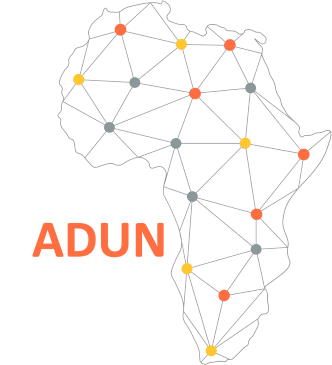Compassionate Assessment Design with AI
(Nicola Pallitt, Rhodes; Maha Bali, American University in Cairo; Daniela Gachago, University of Cape Town)
COVID-19 forced a global emergency pivot to online learning, which has led to an increased demand on both staff and students, with major impact on workloads, research careers, and mental health. Across the globe, academics complain of burn-out, exhaustion, and lack of self-care. This has heightened the concern around the well-being of students and staff (Czerniewicz et al, 2020, Imad, 2021) and has led to an increase in interest in approaches to teaching and learning that recognise the importance of care and compassion, such as humanising pedagogies (Pacanksi-Brock, 2020); pedagogies of equity and care (Bali, 2020) or trauma-informed pedagogies (Imad, 2021).
These frameworks create space to ask important questions on how to respond to the affective dimension of teaching, learning and assessment, and learning design, how to care for students and ourselves, how to set boundaries and highlight the importance of relationship- and community building. This workshop will briefly introduce some of these terms and frameworks and then explore what compassion means in our context and practice. This will be a highly interactive workshop.
We will first share a framework that we co-designed that we have titled Compassionate Learning Design (CLD) and discuss how it evolved and how we are developing it further. We view CLD as a praxis that involves anticipation of learner needs and inequities therein, imagination of potential approaches to address diverse circumstances, and respect for learner agency, starting from responsiveness to learner feedback, and driven by a desire for “parity of participation” (Fraser 2005; Hodgkinson-Williams & Trotter, 2018) wherein all learners, including the most marginalised, are involved in decision-making in their learning experience. We have been developing our work further by applying our framework for co-designing assessment with compassion, that incorporate AI tools. Through this we hope to demystify the hype around AI and inspire fellow educators to reimagine teaching, learning and assessment through CLD.
Recent publications by the presenters
Gachago, D., Bali, M., & Pallitt, N. 2022. Compassionate Learning Design as a Critical Approach to Instructional Design. In Quinn. J, Burtis, M., Jhangiani, S. & Walji, S. (Eds.) Toward a Critical Instructional Design. Hybrid Pedagogy Inc. https://criticalinstructionaldesign.pressbooks.com/chapter/compassionate-learning-design-as-a-critical-approach-to-instructional-design/
Pallitt, N., Bali, M., & Gachago, D. 2022. Academic Development as Compassionate Learning Design: Cases from South Africa and Egypt. In T. Jaffer, S. Govender & L. Czerniewicz (Eds.), Learning Design Voices. Advance preprint. https://doi.org/10.25375/uct.20028431
Pallitt, N.; Gachago, D. & Bali, M. 2021. No Size Fits All: Design Considerations for Networked Professional Development in Higher Education. Conceptualizing and innovating education and work with networked learning. Eds. Nina Bonderup Dohn, Stig Børsen Hansen, Jens Jørgen Hansen, Thomas Ryberg and Maarten de Laat. To be published by Springer, NY.
Networked Learning Editorial Collective (NLEC): Gourlay, L.; Rodríguez-Illera, J.L.; Barberà, E.; Bali, M.; Gachago, D.; Pallitt, N.; Jones, C.; Bayne, S.; Børsen Hansen, S.; Hrastinski, S.; Jaldemark, J.; Themelis, C.; Pischetola, M.; Dirckinck-Holmfeld, L.; Matthews, A.; Gulson, K.N.; Lee, K.; Bligh,B.; Thibaut, P.; Vermeulen,M.; Nijland, F.; Vrieling-Teunter, E.; Scott, H.; Thestrup, K.; Gislev, T.; Koole, M.; Cutajar, M.; Tickner, S.; Rothmüller, N.; Bozkurt, A.; Fawns, T.; Ross, J.; Schnaider, K.; Carvalho, L.; Green, J.K.; Hadžijusufovi?, M.; Hayes, S.; Czerniewicz, L. & Knox, J. 2021. Networked Learning in 2021: A Community Definition. Postdigital Science and Education, 3, 326–369 (2021). https://doi.org/10.1007/s42438-021-00222-y

Dr Nicola Pallitt is an Educational Technology Specialist at senior lecturer level in the Centre for Higher Education Research, Teaching and Learning (CHERTL) at Rhodes University in South Africa. Nicola’s research interests include learning design, online professional development and online supervision. She supervises postgraduate students and co-teaches formal courses in Higher Education and co-facilitates professional development opportunities for lecturers in various settings. She received her PhD from the University of Cape Town. Read more about Nicola here: https://www.ru.ac.za/teachingandlearning/chertl/staff/drnicolapallitt/

Maha Bali is a Professor of Practice at the American University in Cairo’s Center for Learning and Teaching. She is co-founder of virtuallyconnecting.org (a grassroots movement that challenges academic gatekeeping at conferences) and co-facilitator of Equity Unbound (an equity-focused, open, connected intercultural learning curriculum, which has also branched into academic community activities Continuity with Care, Socially Just Academia, a collaboration with OneHE: Community-building Resources, and a 3-month learning journey, MYFest). She writes and speaks frequently about social justice, critical pedagogy, and open and online education. She blogs regularly at http://blog.mahabali.me and tweets @bali_maha

Daniela Gachago is an Associate Professor at Centre for Innovation in Learning and Teaching (CILT) at the University of Cape Town. Her research focuses on academic staff development in the use of emerging technologies to transform teaching and learning in higher education, with a particular focus on socially just pedagogies such as digital storytelling. She is also interested in innovative course and curriculum design drawing from co-creative approaches such as design thinking.
